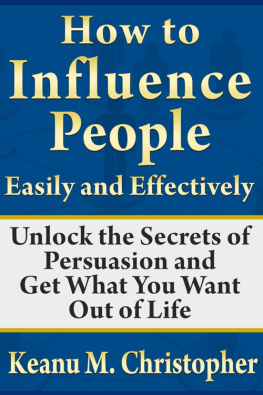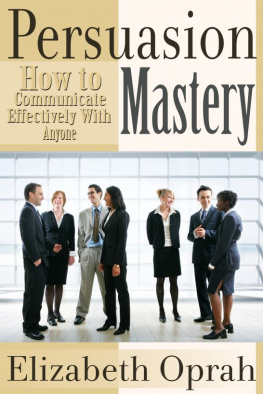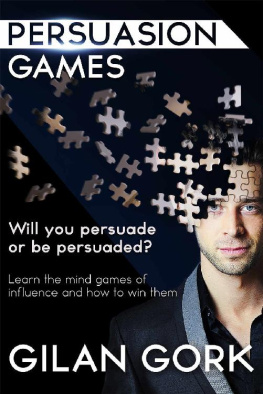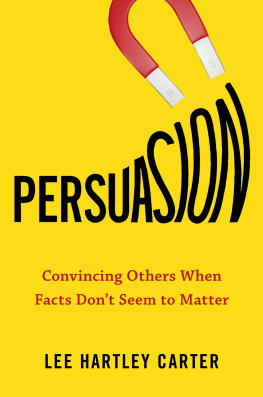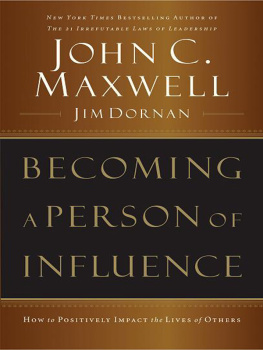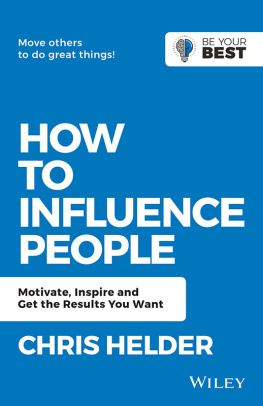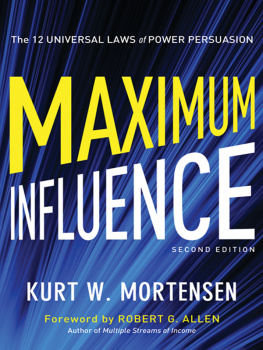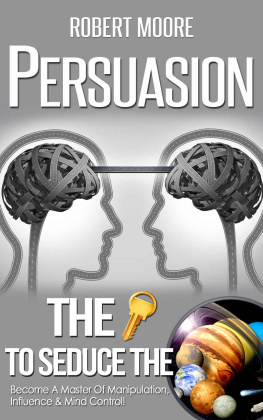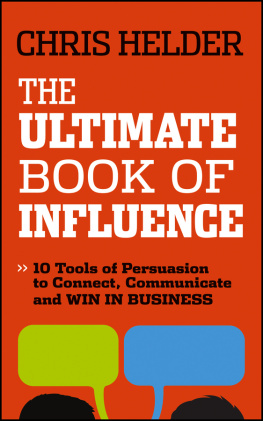2013 by Keanu M. Christopher
All rights reserved. No part of this book may be reproduced, copied, stored, or transmitted in any form or by any means, electronic, photographic, or mechanical, including photocopying, recording, or in any information storage and retrieval systems, without prior written permission of the author or publisher, except where permitted by law.
7. The Power of Observation
Part of being able to influence people is that you need to have keen powers of observation. Observation is a main element to this because by observing closely, you can actually seem to be reading minds.
Most mind readers are not psychic, they just pay attention, and they know how to observe and take those little clues that people give off when talking and it does seem like they can read minds, but really, all they do is read body language.
You need to learn to read body language too.
When we talk or communicate, we give all sorts of verbal clues as to what we are thinking. Our movements, our facial expression, how we hold our bodies, even what we look at when speaking can tell somebody a lot about what is going on inside of our heads that is not spoken out loud.
By observing these clues, you can actually read minds.
Okay, not really read minds but you will be able to tell what is going on in their mind, before they even speak. When we are feeling something or thinking something, our bodies react to that thought or emotion before we even voice it out loud.
Careful observation can tell you what somebody is thinking simply by paying close attention. Law enforcement officials use this sort of training to determine when somebody is lying, because they will give off specific non-verbal clues that they are lying.
Street performers, magicians and psychics all use these techniques to be able to read minds because they are in fact, reading the non- verbal clues that somebody is giving out.
It works, it is easy to learn and you will need to learn to pick up on the non-verbal clues that the people you are communicating with give out in order to be able to guide the conversation to your benefit.
Emotions are easy to spot when talking to somebody; even if they are careful about how they word things, you can still tell what they are feeling. That mind and body connection is why what we are feeling will show up on our faces, even if our words are neutral.
It actually takes a great deal of willpower, training and self-awareness to keep our emotions from showing on our face because of the mind and body connection that we all have.
Poker players use this to determine who is bluffing and who is not, and the best poker players are the ones who can keep their own face still while finding these non-verbal clues on the other players faces.
However, nobody is able to totally blank out the fact that their emotions will always show on their face to some degree. In fact, most people are not even aware that they do it and this is a big advantage to you.
When you know what to look for, you can read somebodys face just like a book. Get the story behind the words that they are saying, it is a very useful thing to be able to do.
If they give clues that they are lying, then you know to not put much stock or trust in their words. Being able to know what they are thinking will allow you to steer a conversation around to your benefit, and you can surely see the advantages to that.
Emotions manifest themselves physically. For example, somebody who is excited about something can keep the emotion off of their face, but their eyes will still dilate.
That is the sort of reaction that people cannot hide. If you are talking about something to another person, and they are telling you that they are not interested, but you notice that their pupils are dilating, they are very much interested indeed.
Lying is easily detected if you observe carefully. Watch their eyes, when somebody is looking towards the right and slightly up, that is what people do when they are accessing a memory. That is a sign of recall, not a sign of lying.
If talking to somebody and they are telling how something was based on their memory, and then they are telling the truth.
If you are talking to somebody and their eyes are going to the left, which is a sign that they are lying.
When somebodys eyes go to the left, they are in creation mode; they are creating what they are saying instead of pulling up a memory, in short, they are lying.
Reading minds is not magic; there is nothing mystical about it. You just need to have keen powers of observation. When you talk to people, make a point to watch them when they speak.
People give away a lot of information without meaning too, if you know what to look for. Knowing how to read body language will help you influence and persuade better because you will be able to adjust what you are saying based on the non-verbal feedback that you are getting.
Have you ever run across somebody who always knew the right thing to say? Did they really know just what to say at the right time? Probably not, they were using your body language to gauge what to say to you.
By correctly anticipating somebodies mood, you can keep your part of the conversation fluid and tailor it so that you say just what they need to hear.
Observation is a necessary component to being influential; it is a skill that all leaders have mastered and you can too.
Learn by simply paying attention to the little movements people make. Watch their eyes. In addition to looking left or right, if somebody is making a point to not look you in the eyes, they are very likely avoiding something or lying.
Non-verbal cues are your pathway towards their subconscious thinking so always pay attention.
8. Rapport
Have you ever just sat down to talk somebody and found an instant connection? That ability to instantly connect with somebody during a conversation is called rapport and it is huge building block to your success when it comes to influencing people.
Rapport is that ability to connect to others, to make them feel comfortable talking to you. Rapport eases the path for clear communication and is a vital part of persuasion. People respond well to people that they feel a connection too.
Reversely, trying to carry on a conversation with somebody that you cannot connect to is awkward and nearly impossible.
For example, Kerry goes to a job interview. Kerry is normally very good with people and can make friends easily, she is outgoing and polite.
As she goes into the interview, Kerry smiles and extends her hand to shake the interviewers hand. The woman shakes Kerrys hand, but offers no smile.
She speaks in clipped tones and does not verbally engage Kerry in conversation, so as Kerry answers a question; her answers are met with silence with long gaps.
Kerry feels very uncomfortable the entire time and is glad when the interview is over, the interview was only half an hour but it felt like forever.
The next day, Kerry has an interview with another company. When she gets called in, she is nervous, but keeps her smile in place. She shakes the interviewers hand and gets a smile in return.
The interviewer goes over Kerrys resume, asking questions and then taking the time to discuss Kerrys answers. During the course of the interview, Kerry learns quite a bit about the person giving the interview and vice versa, the hour interview seemed like it only took minutes.
The first example is when there is no rapport and the second example is how a discussion works when there is rapport.
It happens every time we meet somebody for the first time, we either get along great or we struggle to find common ground. In Kerrys situation, she did all that she could but could not establish rapport with the interviewer.

